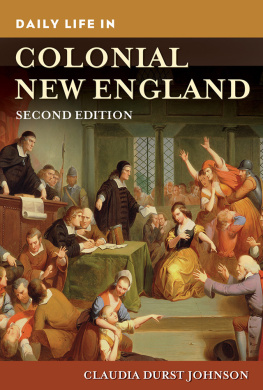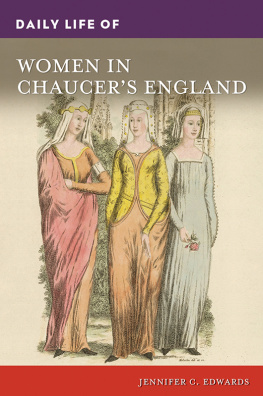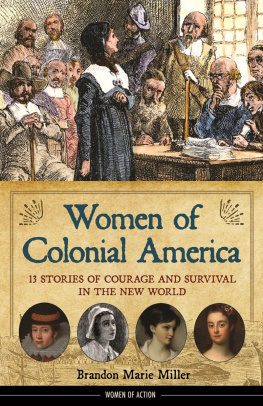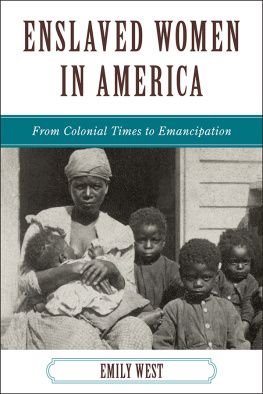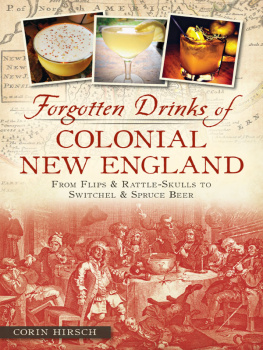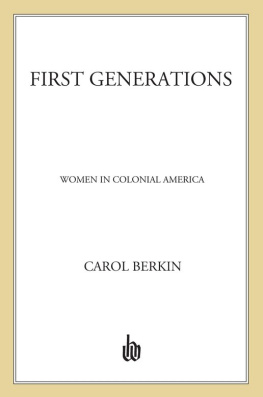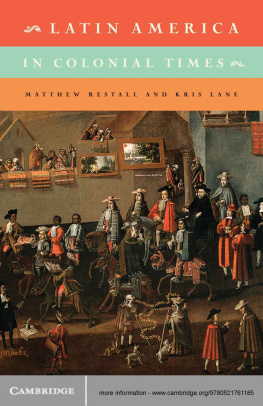DAILY LIFE IN COLONIAL NEW ENGLAND
Recent Titles in The Greenwood Press Daily Life Through History Series
The Ottoman Empire
Mehrdad Kia
Pirates
David F. Marley
Arab Americans in the 21st Century
Anan Ameri and Holly Arida, Editors
African American Migrations
Kimberley L. Phillips
The Salem Witch Trials
K. David Goss
Behind the Iron Curtain
Jim Willis
Trade: Buying and Selling in World History
James M. Anderson
The Colonial South
John Schlotterbeck
A Medieval Monastery
Sherri Olson
Arthurian Britain
Deborah J. Shepherd
Victorian Women
Lydia Murdoch
The California Gold Rush
Thomas Maxwell-Long
18th-Century England, Second Edition
Kirstin Olsen
DAILY LIFE IN COLONIAL NEW ENGLAND
Second Edition
CLAUDIA DURST JOHNSON
The Greenwood Press Daily Life Through History Series
Copyright 2017 by ABC-CLIO, LLC
All rights reserved. No part of this publication may be reproduced, stored in a retrieval system, or transmitted, in any form or by any means, electronic, mechanical, photocopying, recording, or otherwise, except for the inclusion of brief quotations in a review, without prior permission in writing from the publisher.
Library of Congress Cataloging-in-Publication Data
Names: Johnson, Claudia Durst, 1938 author.
Title: Daily life in colonial New England / Claudia Durst Johnson.
Description: Second edition. | Santa Barbara, California: Greenwood, an imprint of ABC-CLIO, 2017. | Series: The Greenwood Press Daily life through history series | Includes bibliographical references and index.
Identifiers: LCCN 2016057105 (print) | LCCN 2016057840 (ebook) | ISBN 9781440854651 (alk. paper: alk. paper) | ISBN 9781440854668 (ebook)
Subjects: LCSH: New EnglandSocial life and customs To 1775.
Classification: LCC F7 .J59 2017 (print) | LCC F7 (ebook) | DDC 974/.01dc23
LC record available at https://lccn.loc.gov/2016057105
ISBN: 978-1-4408-5465-1
EISBN: 978-1-4408-5466-8
21 20 19 18 17 1 2 3 4 5
This book is also available as an eBook.
Greenwood
An Imprint of ABC-CLIO, LLC
ABC-CLIO, LLC
130 Cremona Drive, P.O. Box 1911
Santa Barbara, California 93116-1911
www.abc-clio.com
This book is printed on acid-free paper 
Manufactured in the United States of America
For Caroline West Pearson, Nathaniel Durst George,
and Genevieve West Pearson
In June 12, 1630, the Arbella , one of seventeen vessels carrying close to 1,000 English men and women, landed on the bleak, wild shore of Cape Ann, Massachusetts, northeast of what would be the city of Boston, in territory that in 1614 John Smith had christened New England. John Winthrop, a 29-year-old lawyer, had been elected by the members of the Massachusetts Bay Company to lead the group of religious dissenters, entrepreneurs, indentured servants, and debtors.
After they landed, Winthrop records that most of the new settlers were in no hurry to leave the Arbella , remaining on board for several days before disembarking at Cape Ann and proceeding to Salem. One can only imagine the ship itself was their last tie with home and civilization, and they left it warily and with some regret, despite the troubles they had endured in the passage. Still, the settlers arrived in New England full of hope, secure in the belief they would find a thriving two-year settlement of Englishmen in Salem, Massachusetts, people who had prepared the way for them. The wilderness around the immediate settlement would have been cleared, shelters would be ready for occupation, crops would be established, and stores of food and other necessary supplies would have been put in for the winter. Instead, they were shocked with what they found, aghast at the situation they had planned as their hedge against a brutal winter in a wild country and peopled with a strange and frightening civilization. One-fourth of the Salem settlers had died the previous winter, and the survivors were sick and weak. According to one observer, the Salemites, from bad government planning and general laziness, had not prepared for the newcomers at all. The structures the new settlers saw were few and shabby, entirely inadequate for the winter they would soon face. The corn and supplies that were to have carried them through a long winter would not last through the fall.
Within a week, John Winthrop sized up the situation, formulated a plan of attack, moved his people to Charlestown (hence, to Boston proper), which seemed a more favorable location than Salem, and set to work at hard labor with his hands, along with the lowliest indentured servants. In a few weeks, they had temporary shelters for the winter and at least some provisions. There can be little wonder that in the thriving community that sprang up across the Charles River in Boston, idleness became a cardinal sin and industry a shining virtue.
Motivation for Leaving England
A primary impetus for this voyage to the New World was to avoid the religious persecution that had worsened in England in 1625 with the accession of Charles I to the English throne. The new settlers were mainly Congregationalists (or Puritans), a sect that had risen to prominence in England at the end of the 16th century, its people suppressed and imprisoned in England because they were in disagreement with the established Church of England, which they viewed as being still too Papist. In this atmosphere of increasing hostility, even those who showed sympathy for the Puritans were harassed. To gather or to hold a service in England in a Congregationalist church or to read Scripture was to commit a crime against the state.
These Boston Puritans, unlike their Plymouth neighbors who had landed in 1620, were non-Separatists who believed eventually they would be able to effect changes to their satisfaction within the Church of England. In 1628, the Massachusetts Bay Company was formed, a trading company designed to make money and to guide their settlement. Unlike Spanish and French corporations in the New World, which had their headquarters in the parent countries, the Massachusetts Bay Company was initially run from and by the colony itself.
English persecution led to the phenomenal growth of the Massachusetts Bay Colony, the 1630s becoming known as the years of the Great Migration from England to the Massachusetts Bay. By 1643, 13 years after the Puritans arrived on Cape Ann, 20,000 people had joined the Massachusetts Bay Colony and were living in New England. Boston, its religious and political center, had become the largest town in the colonies.
Although religious persecution brought many of these emigrants to the New World, this was not the sole or even the main reason for settlement in New England. Some, unabashed financial entrepreneurs, came for fortune. Many others were people of humble social status, including indentured servants, debtors, and criminals with little interest in religion. They came to the New World primarily for a better life, especially what seemed the impossible dream of one day owning landimpossible because land ownership for these people had been inconceivable in England for generations. And Massachusetts was particularly attractive because it was the only settlement in the New World where land was deeded to settlers without charge or obligation.

